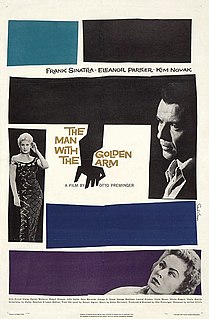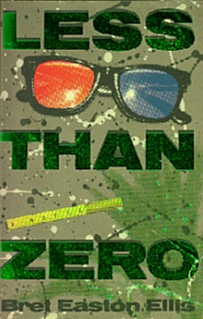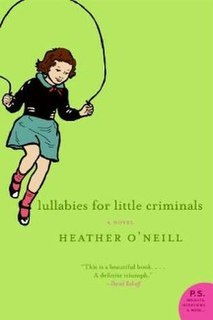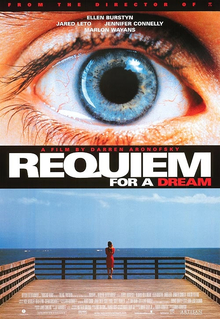
The Man with the Golden Arm is a 1955 American drama film with elements of film noir directed by Otto Preminger, based on the novel of the same name by Nelson Algren. Starring Frank Sinatra, Eleanor Parker, Kim Novak, Arnold Stang and Darren McGavin, It recounts the story of a drug addict who gets clean while in prison, but struggles to stay that way in the outside world. Although the addictive drug is never identified in the film, according to the American Film Institute "most contemporary and modern sources assume that it is heroin", in contrast to Algren's book which named the drug as morphine. The film's initial release was controversial for its treatment of the then-taboo subject of drug addiction.

Without Remorse is a thriller novel, written by Tom Clancy and published on August 11, 1993. Set during the Vietnam War, it serves as an origin story of John Clark, one of the recurring characters in the Ryanverse. Without Remorse introduces Clark as former Navy SEAL John Kelly and explains how he changed his name. G.P. Putnam's Sons paid $14 million for the North American rights, a record for a single book. The book debuted at number one on The New York Times Best Seller list.

Less than Zero is the debut novel of Bret Easton Ellis, published in 1985. It was his first published effort, released when he was 21 years old and still a student at Bennington College. The novel was titled after the Elvis Costello song of the same name.

Requiem for a Dream is a 1978 novel by American writer Hubert Selby Jr., that concerns four New Yorkers whose lives spiral out of control as they succumb to their addictions.
Drugs and prostitution have been documented to have a direct correlation.

Candy is a 2006 Australian romantic drama film, adapted from Luke Davies's 1998 novel Candy: A Novel of Love and Addiction. Candy was directed by debut filmmaker Neil Armfield and stars Heath Ledger, Abbie Cornish and Geoffrey Rush.

Junk, known as Smack in the US, is a realistic novel for young adults, written by British author Melvin Burgess and published in 1996 by Andersen in the UK. Set on the streets of Bristol, England, it features two runaway teenagers who join a group of squatters, where they fall into heroin addiction and embrace anarchism. Both critically and commercially, it is the best received of Burgess' novels. Yet it was unusually controversial at first, criticised negatively for its 'how-to' aspect, or its dark realism, or its moral relativism.
Florence Louise Fisher Bacolod was an American motivational speaker in the 1960s and 1970s who traveled to high schools in the United States, telling stories about her past as a heroin addict and prostitute. Her eccentric mannerisms and often lurid stories – which included tales of prostitution, jailhouse lesbianism, and botched abortions – made her into a cult figure in the late 1970s and 1980s, with VHS tapes of her speaking engagements becoming collector's items.

Sallie-Anne Huckstepp was an Australian writer, sex worker and whistleblower, who was the victim of a homicide. She came to attention in 1981 for speaking out about police corruption in Sydney, Australia. Huckstepp's murder remains unsolved.

Lullabies for Little Criminals is a 2006 novel by Heather O'Neill.

Candy: A Novel of Love and Addiction (1997) is a novel by Luke Davies.

Christiane F. is a 1981 German biographical drama film directed by Uli Edel that portrays the descent of Christiane Felscherinow, a bored 13-year-old growing up in mid-1970s West Berlin, to a 14-year-old heroin addict. Based on the 1978 non-fiction book Wir Kinder vom Bahnhof Zoo, transcribed and edited from tape recordings by Kai Hermann and Horst Rieck, the film immediately acquired cult status and features David Bowie as both composer and as himself. In 2013, Felscherinow published her autobiography Christiane F. – My Second Life.

Where the Day Takes You is a 1992 American crime drama thriller film directed by Marc Rocco and starring Dermot Mulroney, Sean Astin, Balthazar Getty, Lara Flynn Boyle, Ricki Lake, James LeGros, Laura San Giacomo, David Arquette, Christian Slater, and Will Smith. The film tells the story of teenage runaways trying to survive on the streets of Los Angeles. The film was nominated for the "Critics Award" at the Deauville Film Festival and won the Golden Space Needle Award at the Seattle International Film Festival.

Teenage Devil Dolls is a 1955 American black and white teen crime drama film produced, written and directed by Bamlet L. Price, Jr. The film was made in a quasi-documentary style that has no dialogue, just sound effects and music by Robert Drasnin. The movie is narrated by Kurt Martell, as Police Lieutenant David Jason, but the part of the Lieutenant is portrayed by actor Robert A. Sherry in the film. Price borrowed $4000 from his then-wife Anne Francis to make the film.

Madea Goes to Jail is a 2009 American comedy-drama film written and directed by Tyler Perry, which was based on his 2006 play, and starring Perry, Derek Luke, Keshia Knight Pulliam, Ion Overman, RonReaco Lee, Sofía Vergara, Vanessa Ferlito, and Viola Davis. The play and the film deal with Madea going to prison for her uncontrollable anger management problems as she befriends a young incarcerated prostitute that an assistant district attorney knows. The film was released on February 20, 2009. It is the fourth film in the Madea cinematic universe as it follows up from the cameo appearance of Madea in the previous film Meet the Browns and it features Cora and Mr. Brown from that film.

Skagboys is a 2012 novel by Scottish writer Irvine Welsh. It is a prequel to his 1993 novel Trainspotting, and its 2002 sequel Porno. It follows the earlier lives of characters Renton and Sick Boy as they first descend into heroin addiction.

Requiem for a Dream is a 2000 American psychological drama film directed by Darren Aronofsky and starring Ellen Burstyn, Jared Leto, Jennifer Connelly, Christopher McDonald and Marlon Wayans. It is based on the 1978 novel of the same name by Hubert Selby Jr., with whom Aronofsky wrote the screenplay. The film depicts four characters affected by drug addiction and how it alters their physical and emotional states. Their addictions cause them to become imprisoned in a world of delusion and desperation. As the film progresses, each character deteriorates, and their reality is overtaken by delusion, resulting in a catastrophe.

Recovery Road is a novel for teenagers by author Blake Nelson. The book is centered on a teenager, Maddie Graham, at the rehab center, Spring Meadows, and how she overcomes her addiction to alcohol and drugs. The book shows how Maddie transforms herself from a drug-obsessed and alcohol-addicted teen to a mature young woman who ends up going to university and developing a sober life.

Toxic Love is a 1983 Italian drama film directed by Claudio Caligari. The film depicts a realistic and graphic portrayal of the heroin addiction that afflicted many young drifters in the eighties. The cast was entirely made of amateur actors, of whom most of them were or had been drug addicts.

Let No Man Write My Epitaph is a 1960 American crime drama film about the son of an executed criminal who aspires to escape his impoverished, crime-ridden neighborhood with the help of his mother and a group of concerned neighbors. The film was directed by Philip Leacock, and stars Burl Ives, Shelley Winters, James Darren, Jean Seberg, Ella Fitzgerald, and Ricardo Montalban.


















